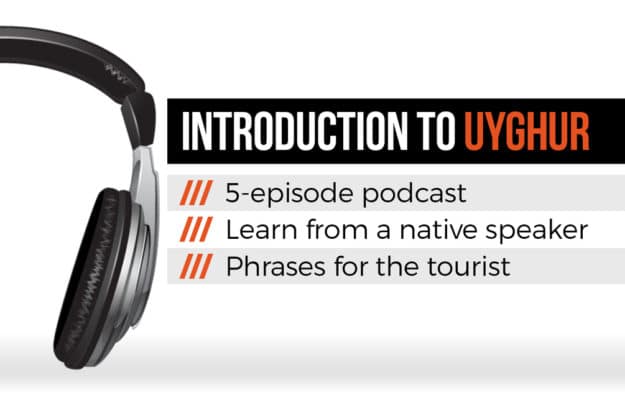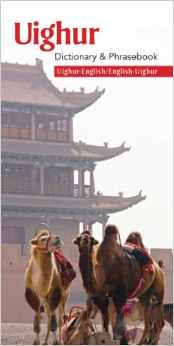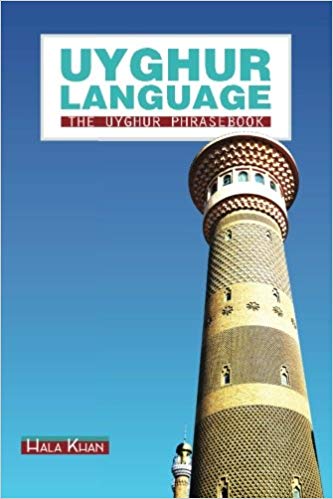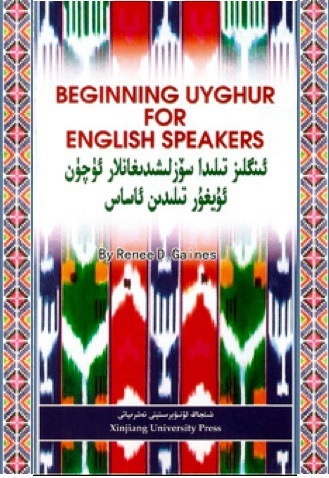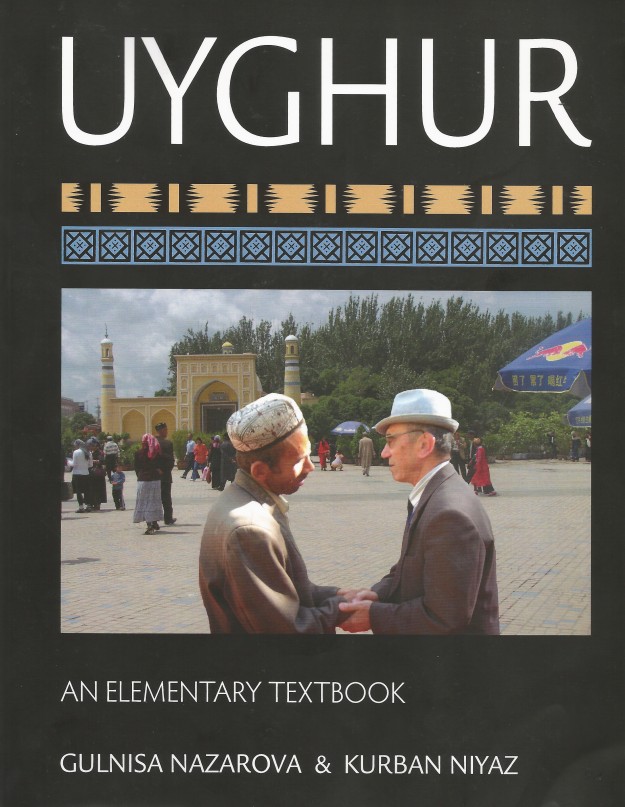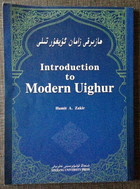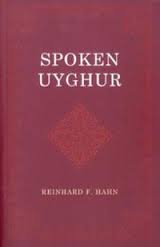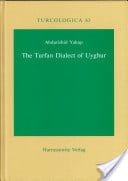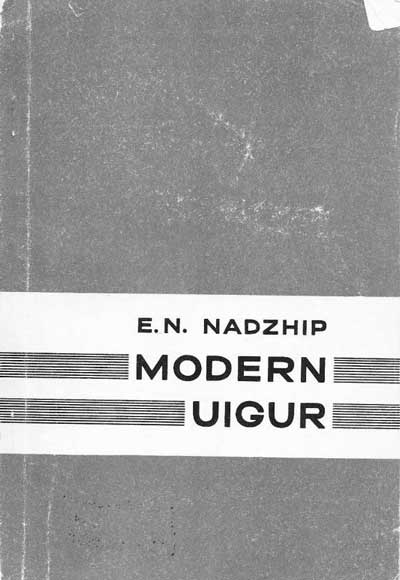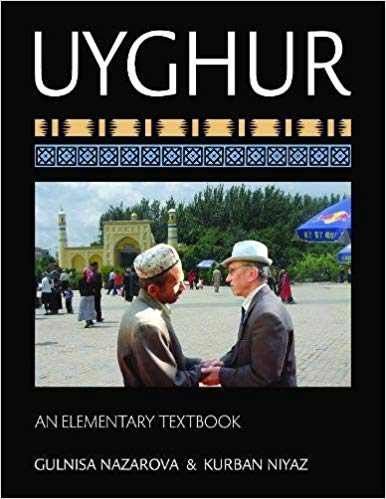Learn Uyghur | Ultimate Guide to Available Resources
Do you have an interested to learn Uyghur? While the resources are sparse, they do exist. In this comprehensive guide to learning Uyghur, I’d like to share with you the type of resources available and the best ways to learn the Uyghur language both inside and outside of China.
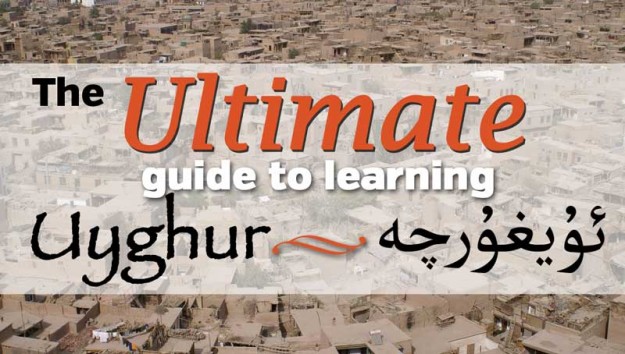
Before I lay out the types of Uyghur language resources that are available to you as you consider learning the language, I’d like to start by telling you a bit of my story.
Because, as you know, it’s not like Uyghur is a language that most people wake up and say: “Gee, it sure would be useful to know how to speak Uyghur.”
Editor’s Note: Many of the links in this article are direct downloads to PDF resources. Over the past few years, I’ve received many comments from people concerned about the copyright infringement. Because most of these books are out of print and almost impossible to find, here’s our stand: if it’s available for legitimate purchase, we’ll link to purchase. If it’s nowhere to be found, we will link to the free PDF download.
My Journey to Learn the Uyghur Language
Back in 2008, I made a somewhat whimsical decision to spend a year in Xinjiang and to learn the Uyghur language. I was really getting into languages at that point and I guess that something about the relative “obscurity” of Uyghur appealed to me.
By virtue of this same obscurity, the best basic materials that I could find online was an alphabet chart with hints about the pronunciation – something that I printed out and practiced diligently with the staff of a small Muslim noodle shop in Shanghai while preparing for a flight to Urumqi, the capital of Xinjiang.
Once in Urumqi, I made a trip to the biggest bookstore there was and was recommended a copy of 大众维语 (dàzhòng wéiyǔ, “Popular Uyghur”) – a two-part book on the language in Mandarin, and the only real book on the language that they had.
It came with some audio tapes. Not CDs – tapes. And so, I promptly went to the bazaar and went back in time by getting myself a walkman.
I was starting to ask myself: “Is it even possible to properly learn Uyghur at all?”
For someone who had only studied French and Mandarin as foreign languages – both of which have an incredible abundance of teaching and learning materials – it should not be surprising that I was starting to ask myself: “Is it even possible to properly learn this language at all?”
All of the materials at my disposition being in Mandarin, it often felt as if I was refining a language I already knew more than I was learning the one I knew nothing about.
Things would, of course, get better. As time passed, I discovered more Uyghur language materials. Many of these were still in Mandarin, but some were in English, and some were quite good. Some were a bit older and simply obscure – difficult to learn about and even more difficult to acquire – but many were more recent, released only in the past decade.
However, although both the situation and the trend now appear to be much better than what they once were, the question of “How do I learn Uyghur as a foreign language?” is still being asked.
The purpose of this article is to outline the options available to you. Given the scarcity of Uyghur language classes, there will be particular emphasis on self-study.
As different people might want to learn Uyghur for different reasons and to different levels of proficiency, the resources will be broken into three more-or-less independent parts. Click on the link to jump to that section of this article.
- The Respectful Tourist – You plan to visit Xinjiang and you want to show your good will by attempting to speak the local language for the week or two that you’re there.
- Moving to Xinjiang – The second will be an extension, intended for those who are planning to move to Xinjiang or spend a considerable amount of time there (for work, study, research, fun, or whatnot).
- Linguists – Finally, the last part will be intended for the more academically oriented linguists who plan to add Uyghur to their arsenal – the “pros”.
Basic Uyghur Language for Tourists
If Xinjiang is the main destination of your trip and you are feeling particularly ambitious and are willing to dedicate some time to cultural preparations, then you could invest in one of these three options:
1. Uyghur For Tourist Audio Podcast ($5.99)
This Uyghur for Tourists podcast consists of a series of five teaching episodes intended to give you very basic phrases you can use while traveling around Xinjiang.
Learn how to greet people, how to ask for the bathroom, how to order food, and how to use numbers for bartering. In a matter of just a couple hours, you can have enough Uyghur language to be dangerous as you move around Xinjiang.
Purchase Uyghur for Tourists ($5.99)
BONUS! In addition to the podcast, the download also includes all the Anki flashcards for the phases used so that you can review them on the go (thanks to Fragrant Mandarin for making this resource available!)
2. Uighur Dictionary & Phrasebooks (~$13)
If you’d like something a little more robust, you can find a couple of newer Uyghur phrasebooks to take along your travels on Amazon. There are two I recommend, which you can see below:
3. Free Uyghur Language Resources
If you really don’t feel like paying for a book, there are a few free language resources which, although they aren’t entirely beginner-friendly, they are certainly wallet-friendly.
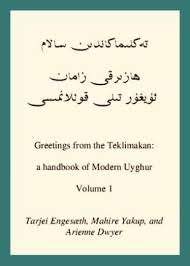
- Greetings from the Teklimakan: Published by the University of Kansas, this is one of the best free resources available online for those wanting to learn to speak Uyghur (it’s also been adapted for YouTube). If you are more of the multi-country-touring backpacker/biker/desperado variety, with Xinjiang just one stop of many as you tear your way through Asia, then you’re probably just interested in a few spoken phrases to ensure your survival.
- FarWestChina’s Uyghur/Mandarin Phrase Page: Although the phrases here are limited and they’re very much just the basics, it’s free and it’s worth checking out.
- Tatoeba: This sentence translation website includes a searchable repository of 7,000+ Uyghur sentences. They don’t all have English translations and they aren’t all correct, though.
One final option that you could consider would be to walk into a bookstore once in China (the 新华书店, xīnhuá shūdiàn, for example) and to ask for a book about 维语会话 (wéiyǔ huìhuà, “Uyghur Conversation”).
Most likely, you’ll be taken to a section with lots of phrasebooks, most of them in Mandarin but some, if you’re lucky, in English.
BONUS: Quick Uyghur Tourist Phrases
For the sake of convenience, I’ll also include my top seven personal favorite phrases:
- “men (Americalik)” “I am (American)” – Use this to say where you’re from, as the locals will be curious. If you’re not from America, then say the name of your country and add “lik” at the end. Uyghur speakers reading this will roll their eyes and linguists may feel the urge to vomit, but this is sufficient as an approximation for most practical purposes.
- “menin smim (John), sminiz neme?” “My name is (John). What’s your name?” – Just insert your name and then listen attentively for theirs.
- “(tamak) barmo?” “Is there (food)?” – Very useful if you come to some place that looks like it might have food, but are not sure!
- “(hajethana) neda?” “Where is (the bathroom)?” – Very important, needless to say.
- “yahshimu siz”, “rehmet”, “hosh”, “makul” “How are you?”, “Thank you”, “Bye”, “Okay” – Your basic etiquette for the day.
- “neche pul?” “How much?” – For the bazaar.
- “bolmaidu” “That’s not okay.” – For when “no” really means no.
You can, of course, experiment by putting other nouns in the parentheses once/if you acquire a dictionary. A good online resource, though it requires you to be familiar with the Uyghur script, is Yulghun (although this is currently blocked in China, so consider getting a dictionary once in Xinjiang if you don’t have a means of bypassing the Great Firewall).
Learn Uyghur (for the Resident)
If you’re planning on sticking around for more than just a few weeks and would like to learn Uyghur with the eventual goal of having interesting, meaningful conversations with the good people of Xinjiang, then a phrasebook will not be enough and you will be forced to study the grammar.
As a starting point, the book from Kansas University I mentioned earlier remains my number-one recommendation – it is both free and comprehensive.
Beginning Uyghur for English Speakers and Uyghur: An Elementary Textbook are also good alternatives, though here you would have to pay and both books are less geared towards self-study (they are, however, excellent if you can find a native speaker to work with you).
Each of these are beginner-friendly, make no assumptions on your linguistic background, and do as much to immerse you in the language and culture as possibly.
The latter in particular is full of colorful pictures and is fairly comprehensive, but also comes with a heavier price tag, so weigh the pros and cons and choose accordingly.
Yet another not-so-bad alternative is Hamit Zakir’s Introduction to Modern Uighur (links to a PDF version of the book, whose cover you can see to the right).
Once you’ve gone through and mastered one of these four, you basically have the grammatical foundations you need to go on to the intermediate levels.
Intermediate Level Uyghur Lanaguage Learning
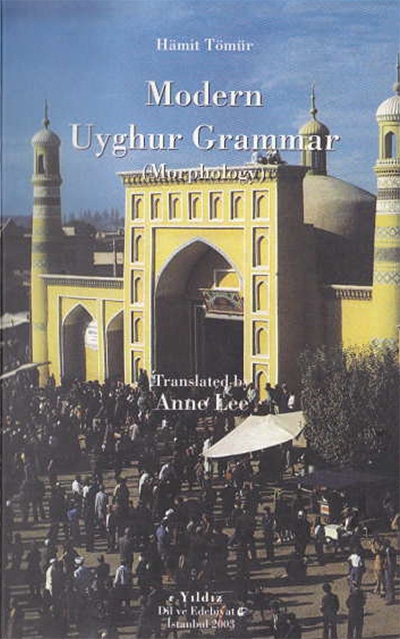
If you’re feeling a bit masochistic, then Hamit Tömür’s Modern Uyghur Grammar (link to PDF download) is THE book to consult, as it delves into nearly all of the grammatical concepts that you could need.
If mastered, it will demystify nearly all of the Uyghur language for you, letting you read and understand the vast majority of modern written Uyghur with the modest help of a dictionary.
A more compact alternative is Frederick De Jong’s A Grammar of Modern Uyghur, although it is not as comprehensive as Tömür’s and comes with a hefty price tag.
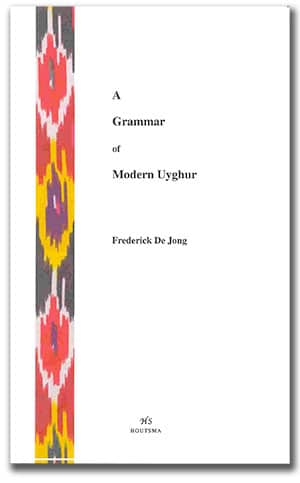
If you would like to take a break from reading textbooks, then Nabijan Tursun’s Uyghur Reader (link to PDF since it is no longer in print) is an excellent collection of annotated reading selections intended for intermediate-level learners, provided, again, that you are willing to pay.
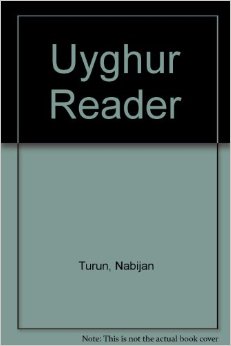
Uyghur for the Linguist (Advanced)
If languages are what you do, and terms like “morpheme”, “copula”, and “fricativization of bilabials” are your standard jargon, then you’re fairly lucky, as the academic literature on Uyghur is quite vast in comparison to what is available to learners.
In addition to going through the learner-oriented materials discussed above, you might also be interested in:
- Spoken Uyghur by Reinhard F. Hahn, and all of the many references therein.
- The Turfan Dialect of Uyghur by Abdurishid Yakup (and all of the references therein). This book can be viewed in its entirety on Google Books.
- Modern Uigur by E. N. Nadzhip
Once your written Uyghur reaches an upper intermediate or advanced level, you can also tackle all of the books written by Uyghur linguists for Uyghur linguists.
Uyghur bookstores and private booksellers in Xinjiang are probably the best way to go for obtaining these, but you can also find a few scanned versions here.
Conclusion | Resources to Learn Uyghur
Hopefully, the references provided above keep you busy and help you in your Uyghur-learning quest, however grand and whatever its motivation. To wrap this up, I would like to emphasize the following additional points as I feel like this article would be incomplete without them:
- The materials presented above together with a good amount of diligent self-study can teach you to read and write like a native, but nothing beats immersive learning, so search out conversations with native Uyghur speakers whenever possible and then hit the books. If you are in Xinjiang, this is probably much easier, though you might have to get creative at times (personally, I’ve volunteered as a waiter at a restaurant before to get more speaking practice… and I know that I wasn’t the first to do so). If you’re outside, there are websites like My Language Exchange where you can meet Uyghur speakers and do a sort of tandem language exchange over Skype. It does work. Facebook also has a few Uyghur-related groups that could probably introduce you to native speakers who could then help you. My personal experience is that most native Uyghur speakers are more than happy to teach you their language and are generally very encouraging of your attempts to learn. That being said, do still hit the books. While practicing with native speakers is vital, you will quickly discover that few of them can explain to you the grammar of their language the way that a good textbook can.
- Professional instruction is great provided you can find it. If you are in the United States, then there are several good programs at your disposal. If you are in Xinjiang, then you might consider taking classes at one of the local universities, although these seem to have gotten more restrictive over the past few years.
- A good quantity of materials is also available in other languages, such as Mandarin, Russian, and even German. I have not mentioned them here, but those multilingual readers who are interested may find them listed and (mostly) available for download from my personal collection.
May you have the best of luck in learning this challenging but wonderful language!
———————————————————————————
About the Author

Gene Bunin is a world traveler and scholar, with particular interests in mathematics, writing, and languages (of which Uyghur is first and foremost, of course). A collection of his work, which includes a more comprehensive review of the different materials and the draft-in-preparation of an Uyghur grammar e-book, may be found on his personal website.

